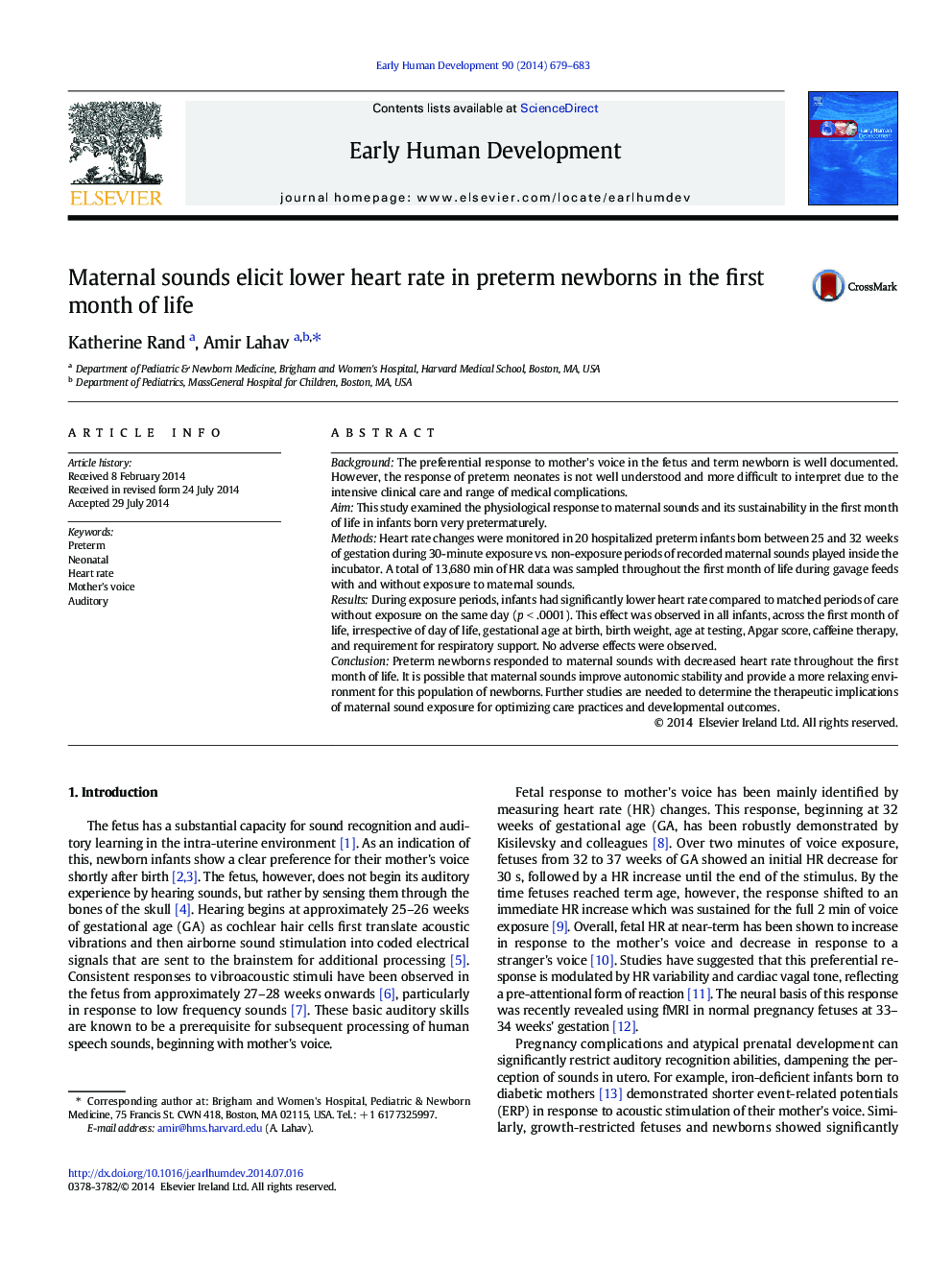| Article ID | Journal | Published Year | Pages | File Type |
|---|---|---|---|---|
| 3916649 | Early Human Development | 2014 | 5 Pages |
BackgroundThe preferential response to mother's voice in the fetus and term newborn is well documented. However, the response of preterm neonates is not well understood and more difficult to interpret due to the intensive clinical care and range of medical complications.AimThis study examined the physiological response to maternal sounds and its sustainability in the first month of life in infants born very pretermaturely.MethodsHeart rate changes were monitored in 20 hospitalized preterm infants born between 25 and 32 weeks of gestation during 30-minute exposure vs. non-exposure periods of recorded maternal sounds played inside the incubator. A total of 13,680 min of HR data was sampled throughout the first month of life during gavage feeds with and without exposure to maternal sounds.ResultsDuring exposure periods, infants had significantly lower heart rate compared to matched periods of care without exposure on the same day (p < .0001). This effect was observed in all infants, across the first month of life, irrespective of day of life, gestational age at birth, birth weight, age at testing, Apgar score, caffeine therapy, and requirement for respiratory support. No adverse effects were observed.ConclusionPreterm newborns responded to maternal sounds with decreased heart rate throughout the first month of life. It is possible that maternal sounds improve autonomic stability and provide a more relaxing environment for this population of newborns. Further studies are needed to determine the therapeutic implications of maternal sound exposure for optimizing care practices and developmental outcomes.
